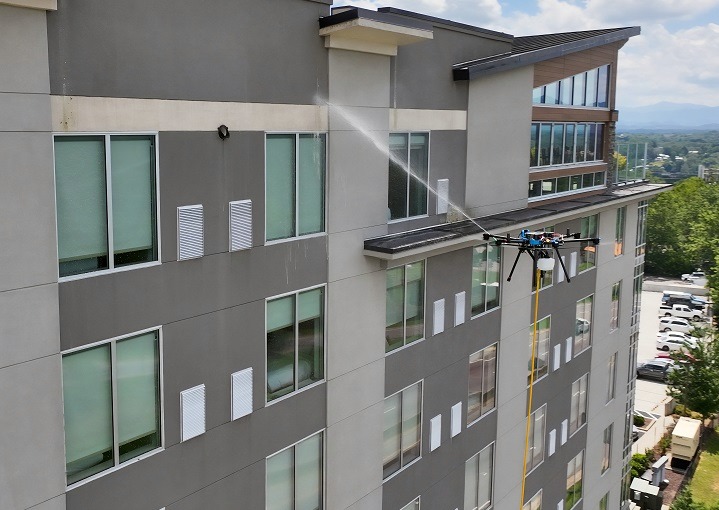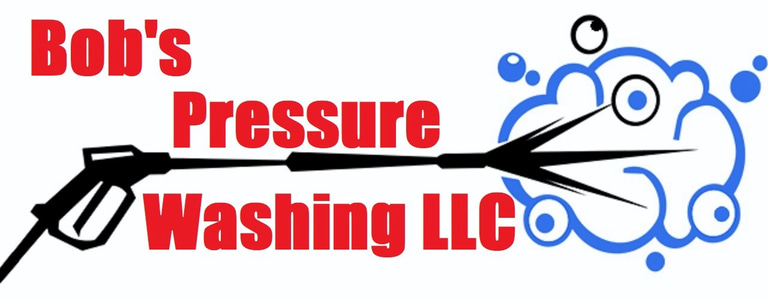Innovations and Trends in Pressure Washing: Advancements and Sustainable Practices
The pressure washing industry has undergone significant transformations in recent years, driven by rapid technological advancements and an increasing demand for more efficient and sustainable solutions.
EXTERIOR CLEANING SERVICE PROCESSESBASIC HOME MAINTENANCECURB APPEALPRESSURE WASHING SERVICES


Introduction to the Latest Advancements in Pressure Washing
The pressure washing industry has undergone significant transformations in recent years, driven by rapid technological advancements and an increasing demand for more efficient and sustainable solutions. As businesses and individuals seek ways to maintain cleanliness and hygiene, pressure washing has emerged as a vital part of property and equipment maintenance. However, the conventional methods are continually evolving, necessitating that industry professionals stay abreast of the latest innovations and trends.
In today’s fast-paced environment, the integration of advanced technology into pressure washing equipment has revolutionized the efficiency and effectiveness of cleaning practices. From digital monitoring systems to adjustable pressure controls, these innovations ensure optimal performance and user safety. The focus on technological progress is not merely about enhancing power but also about creating user-friendly solutions that meet diverse needs ranging from residential to industrial applications.
Simultaneously, there is a growing emphasis on sustainability within the industry. Echoing the global call for environmental consciousness, advancements in pressure washing now prioritize eco-friendly practices. This not only includes the development of more energy-efficient machines but also the incorporation of biodegradable detergents and water conservation techniques. Sustainable practices aim to minimize environmental impact while maintaining high standards of cleanliness.
In the sections that follow, we will delve deeper into these two primary focuses: the new technological advancements and the sustainable practices that are shaping the future of the pressure washing industry. By understanding and adopting these innovations, professionals and consumers alike can ensure that their cleaning endeavors are both effective and environmentally responsible.
Cutting-Edge Pressure Washing Equipment
In recent years, the pressure washing industry has witnessed remarkable advancements in equipment, greatly enhancing cleaning efficiency and user experience. Modern pressure washers are now equipped with state-of-the-art features aimed at delivering higher performance and better durability. One of the most notable improvements is the inclusion of adjustable pressure settings. This feature allows users to fine-tune the water pressure according to the surface being cleaned, helping to prevent damage to delicate materials while ensuring thorough cleaning of tougher areas.
Additionally, smart controls have been integrated into newer models, allowing for more precise operation and automated adjustments based on the task at hand. For instance, some pressure washers come with sensors that detect the type of dirt and debris being cleaned and alter the pressure accordingly. This not only maximizes cleaning effectiveness but also conserves water and energy. Enhanced safety mechanisms are another significant leap forward, offering features such as automatic shut-off to prevent overheating and pressure release valves to avert mishaps.
Leading manufacturers in the industry are setting new benchmarks with their innovative product lines. Brands such as Kärcher, Simpson, and Generac have introduced several ground-breaking models. For example, Kärcher’s K5 Premium Full Control Plus Home Pressure Washer is renowned for its multi-jet spray lance that provides different spray patterns in a single tool. Simpson’s PowerShot PS60918 is noted for its robust frame and commercial-grade triplex plunger pump, making it ideal for heavy-duty tasks. Generac’s SPEEDWASH 6882 model features a unique power broom and soap blaster, combining high pressure with detergent application for superior results.
These technological advancements not only lead to more efficient cleaning but also significantly enhance the overall user experience. Modern pressure washers are more user-friendly, reduce manual labor, and provide safer operations. As the industry continues to innovate, we can expect even more intelligent and efficient pressure washing solutions in the future.
Innovative Techniques in Pressure Washing
Pressure washing has seen significant advancements in recent years, with new techniques emerging that redefine the standards of cleaning efficiency and surface protection. Among these innovative techniques, soft washing, steam pressure washing, and robotic pressure washing stand out as particularly transformative.
Soft washing is revolutionizing the industry by offering a gentler alternative to traditional pressure washing. Unlike conventional methods that rely on high pressure to clean surfaces, soft washing employs lower pressure combined with specialized cleaning solutions. This approach is particularly beneficial for delicate surfaces such as roof shingles, painted wood, and siding, where high pressure could cause damage. By utilizing biodegradable detergents, soft washing effectively removes dirt, mildew, mold, and other contaminants without compromising the integrity of the surfaces, proving to be both safe and environmentally friendly.
Another noteworthy advancement is steam pressure washing. This method utilizes high-temperature steam to enhance the cleaning power of pressure washing. Steam pressure washing excels at removing grease, oil, and other stubborn contaminants that traditional methods struggle with. Furthermore, the high temperature of the steam not only cleans but also sanitizes surfaces, making it an excellent choice for industries that require stringent hygiene standards, such as food processing plants and healthcare facilities. The reduction in water usage is an added advantage, aligning with sustainable practices by conserving this vital resource.
Robotic pressure washing represents a leap towards automation in the cleaning industry. These automated systems are designed to handle large-scale cleaning tasks without the constant need for human oversight. Equipped with advanced sensors and navigation systems, robotic pressure washers can efficiently clean complex structures like industrial tanks, ships, and large buildings. These robots ensure consistent cleaning quality while significantly reducing labor costs and minimizing workers' exposure to potentially hazardous environments.
Real-world applications of these techniques highlight their efficacy. For instance, in the automotive industry, steam pressure washing is employed to clean and sanitize vehicle components, ensuring they meet rigorous hygiene standards. Meanwhile, soft washing is increasingly popular in residential areas for roof and façade maintenance, extending the lifespan of these surfaces. Robotic pressure washing systems are gaining traction in the maritime industry, where they clean the hulls of ships with remarkable precision, maintaining fleet efficiency.
Incorporating these innovative techniques into pressure washing practices not only enhances cleaning outcomes but also makes the process more sustainable and safer for both surfaces and operators.
Sustainable Pressure Washing Equipment
As concern for the environment continues to grow, the pressure washing industry has responded with innovations geared towards sustainability. One significant advancement is the development of electric pressure washers, which boast lower emissions compared to their gas-powered counterparts. These electric models are not only more energy-efficient but also operate more quietly, contributing to a reduction in noise pollution.
Beyond the shift to electric power, water reclamation systems represent another pivotal innovation in sustainable pressure washing equipment. These systems are designed to capture and recycle water during the cleaning process, substantially reducing overall water usage. By filtering and reusing water, these systems support environmental conservation while also lowering operational costs for users.
To further enhance sustainability, modern pressure washing equipment often includes features aimed at minimizing both water and chemical usage. Adjustable pressure settings and advanced nozzle designs allow operators to use only the necessary amount of water and detergents, thereby reducing waste and environmental impact. Brands such as Kärcher and Greenworks have led the way in incorporating these eco-friendly features into their models, offering a range of options for environmentally-conscious users.
Using sustainable pressure washing equipment presents numerous benefits for businesses. Reduced operational costs—thanks to lower water and energy usage—can improve a company's bottom line. Moreover, adopting eco-friendly practices can enhance a business's reputation, attracting customers who prioritize environmental responsibility. For the broader environment, these advancements in pressure washing technology contribute to water conservation and a decrease in harmful emissions and pollutants.
In sum, the move towards sustainable pressure washing equipment marks a positive step for both the industry and the environment. As innovation continues, it is likely that we will see even more eco-friendly solutions emerge, further aligning the goals of efficient cleaning and environmental stewardship.
Trends in Eco-Friendly Pressure Washing Practices
In recent years, the pressure washing industry has seen a significant shift towards eco-friendly practices. Environmental sustainability has become a priority, not just for regulatory compliance, but also to cater to the growing consumer demand for greener services. Companies are increasingly adopting biodegradable and non-toxic cleaning agents, which reduce the environmental impact compared to traditional chemical-based products. These agents are designed to break down harmlessly in the environment, ensuring that the cleaning process is both effective and sustainable.
One of the primary concerns in pressure washing is water consumption. To address this, industry leaders are implementing strategies to minimize water waste. High-efficiency pressure washers that use less water while maintaining strong cleaning capabilities are becoming more prevalent. Additionally, some companies are employing water reclamation systems, which capture and recycle used water, further reducing the overall water usage.
Industry standards for eco-friendly pressure washing are evolving as well. Certification programs and eco-labels are gaining traction, helping consumers identify companies that meet environmental standards. For instance, the Environmental Protection Agency’s (EPA) Safer Choice program certifies products that meet stringent safety and environmental criteria, encouraging the use of safer chemicals in pressure washing.
Many businesses have successfully implemented these eco-friendly practices. For example, GreenWash Solutions, a pressure washing company based in California, has seen a surge in customer satisfaction after switching to biodegradable cleaning agents and adopting a water recycling system. Similarly, EcoClean Innovations in Oregon has built a reputation for their use of non-toxic products and efficient water management, attracting eco-conscious clients and setting a benchmark in the industry.
As the pressure washing industry continues to evolve, it is clear that sustainable practices are not just a trend, but a necessity. The integration of eco-friendly methods is helping companies reduce their environmental footprint, comply with regulations, and meet the expectations of an increasingly environmentally aware customer base.
Future Outlook: Innovations and Sustainability
The continuous evolution of pressure washing technology and sustainability practices promises a dynamic and transformative future for the industry. As we look ahead, several emerging trends and potential developments are poised to shape the landscape of pressure washing, with far-reaching implications for businesses and consumers alike.
One significant trend is the integration of artificial intelligence (AI) and automation in pressure washing. AI-powered systems can optimize water usage, detect the best cleaning patterns, and even predict maintenance needs, thereby enhancing efficiency and reducing operational costs. Automation, including robotic pressure washers, is set to revolutionize the industry by allowing for precise, consistent, and reliable cleaning with minimal human intervention, promising improved safety and productivity.
Advancements in renewable energy-powered equipment are another promising frontier. As the global push toward sustainability intensifies, there is a growing interest in pressure washing equipment powered by solar energy, wind energy, or hybrid systems. These innovations not only reduce the carbon footprint of pressure washing operations but also offer cost savings in the long run through reduced energy consumption.
Additionally, the increasing importance of sustainability certifications cannot be overlooked. As environmental awareness grows, pressure washing businesses that achieve certifications for using eco-friendly practices and products will likely gain a competitive edge. Such certifications can enhance brand reputation, attract environmentally conscious clients, and comply with evolving regulations focused on reducing environmental impact.
Looking further into the future, the industry might witness the development of advanced cleaning agents that are both highly effective and biodegradable, minimizing environmental harm. There is also potential for the use of smart technology that provides real-time data analytics, enabling companies to monitor performance, track resource use, and make data-driven decisions to optimize operations.
These innovations and trends collectively indicate that the future of pressure washing will be defined by technological advancements and a steadfast commitment to sustainability. Businesses that embrace these changes and invest in cutting-edge, eco-friendly solutions will undoubtedly stay ahead of the curve, thriving in an ever-evolving industry landscape.
